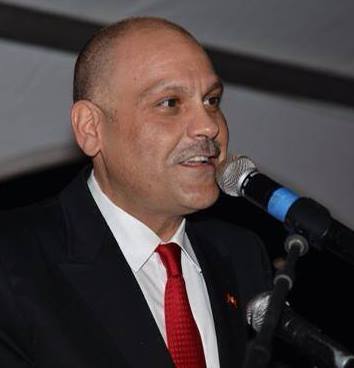The subject of Parliamentary Privilege and Immunity was the focus of heated debate between MP for St. Peter Hon. Asot Michael and Speaker of the House Sir Gerald Watt QC when the former questioned the overwhelming powers of a section of the revised Standing Orders.
MP Michael said that while Parliamentary Immunity is not something that should be taken for granted by members of either side of the aisle, it stands as part of traditional inherited practices that Antigua’s House of Representatives and allows sufficient leeway for frank and open debates.
This is Section 15.2 to 15.6 of the revised Standing Order.
However, the Section, according to the MP’s interpretation, provides that a non-member of the House, who has been referred to in the House by name or in such a way that is readily identifiable, to make a submission to the Speaker in writing claiming defamation. This non-member would also be able to submit a response to the accused and request that said response be incorporated into Hansard, the parliament’s official record.
The Revised Standing Orders debated on Tuesday was said to have been drafted in 2018, according to Attorney General Hon. Steadroy ‘Cutie’ Benjamin – the mover of the revision.
This particular amendment will force MPs to be more mindful of openly speaking against members of the public while on the parliamentary floor. As it stands, an MP speaking in active parliament cannot be sued for libel. MPs traditionally use the platform to respond to attacks against them and their offices in the public domain. These responses cannot be challenged in the court of law.
MP Michael’s challenge was, essentially, that Speaker Sir Gerald Watt QC was chairperson of the drafting committee of the revised standing order and had essentially given himself powers that supersede those of elected members.
“If the Speaker decides that the response should be incorporated in the parliamentary record, he shall order that that submission, as may be amended by him, be read by the clerk at the next subsequent sitting after his determination,” the MP said while urging that laws be passed for longevity, and not only for the benefit of the government of the day.
In asking for the Speaker’s indulgence, and consideration of his comments outside of a personal nature, MP Michael reminded – with the verification of the AG – that the standing orders were last reviewed and passed in 1967.
“The speaker now becomes the judge, not the members who are elected. No vote [by MPs] on whether a non-member submission is included in Hansard. So, in this defamation case before the highest court in the country, which is this parliament, the trial is with the Speaker – the judge alone without a jury.
“We [MPs] are non-entities. We don’t vote to decide if we defame somebody? The speaker in his sole authority decides if the person has a case and instructs the clerk to include it into Hansard?
“That is Ludacris. It erodes the parliamentary democracy that we inherited and we are governed by. It cannot be right,” the MP said passionately.
He asked that the entire Section 15 be deleted from the revised Standing Orders, as unacceptable and an assault on Parliamentary Privilege.
Responding, House Speaker Sir Gerald Watt questioned the MP’s interpretation of how the Section affects Parliamentary Privilege.
Michael clarified, “It affects it because [if an MP] says something that is defamatory or libelous, you [the Speaker] are the judge; [you] meet with the person; you don’t have to consider the truth; you instruct the Clerk – You, not the House, we don’t decide. We have no say as elected members. And you are not elected. And [then] you vote on it and you decide that is to be recorded in Hansard. I’ve never heard of such ludicrous. Who elected you?”
The Speaker said the amendment is in keeping with the new modern approach the world over, including the UK and Canada, and is a way of preventing parliamentarians from saying something that seriously affects a person in his business, reputation, or otherwise.
He said the individual will simply be able to go to parliament and submit a response in defense that is to be included in Hansard.
“I think if we look through these rules, we will still see Parliamentary Privilege. It is no doubt that the general public is not happy with the fact that a Parliamentarian can say whatever he likes and that’s the end of it. That’s the old fashion thing. It is not the modern way. It is for the parliament to decide if they want to move forward,”
The Speaker did not object to adding a voting criterion that includes MPs before a response is included in Hansard, but questioned the rationale of throwing out the section completely – calling it “rather reckless” since it does not “really interfere with real privilege”.
Leader of the Opposition Hon. Jamol Pilgrim who also weighed in on the subject agreed with his colleague on the opposite side of the aisle in that the sections indeed give sweeping powers of this matter to the Speaker and should be removed. He did however support the notion that the public should have an opportunity to respond to allegations made against them in the Parliament and have those responses included in the official record.
“Persons need to get that opportunity to clear their name and have it on record,” in the event that it comes up at a later date and needs to be rebutted.
END.

